
12 minute read
Deans’ Updates
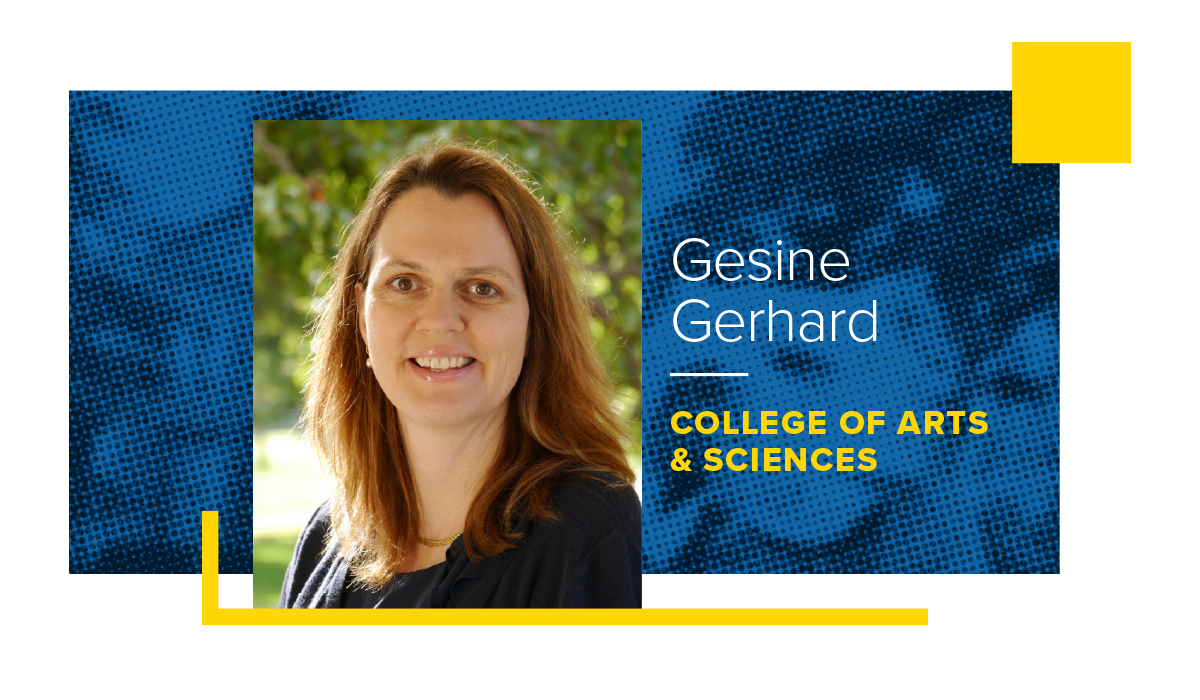
In the College of Arts and Sciences, students learn by doing. Students build communities as learners in a classroom, science lab, studio, or in the field.
They create strong relationships with fellow students in their majors, in music or theatre ensembles, or by doing work in the community. Arts and Sciences students perform on stage, as interns in professional settings, and as presenters of undergraduate research at professional conferences. Below, I highlight three recent student experiences that fostered learning, connection, and community among College of Arts and Sciences students.
Community through art: In March, the Performing Arts Hall lobby was transformed into a stage for an immersive classical music soundscape—a work composed by Nathan Felix, titled16 Pianos in Surround Sound. Students and faculty invited the audience to actively participate in a performance in and around the Anderson Gallery. The concert blurred the boundaries of classical music, installation, and performance art.
Connections that transform lives: Another project involves sociology students looking at the experiences of people living unsheltered in Polk County. For the last two years, a group of sociology students, led by Assistant Professor Elizabeth Talbert, studied the experiences of people living unsheltered in Polk County. The group has built relationships with affordable housing agencies, the staff who run them, and the people who are served by them. The project forms connections and builds community among people who would have otherwise not met each other.
Empowering underrepresented students in tech: Computer Science professors Tim Urness and Meredith Moore have been building a community for students who are underrepresented in technology. As scholarship recipients, these Inclusive Scholars in Digital Proficiency form a cohort of students in various majors who engage with questions of digital literacy and help other Drake students navigate the monumental technological changes in our society. The program promotes excellence in technology and data skills needed by students to become tomorrow’s leaders.
These are just three of the many experiential learning opportunities that create community and a sense of belonging among students, all while preparing them for a successful future.
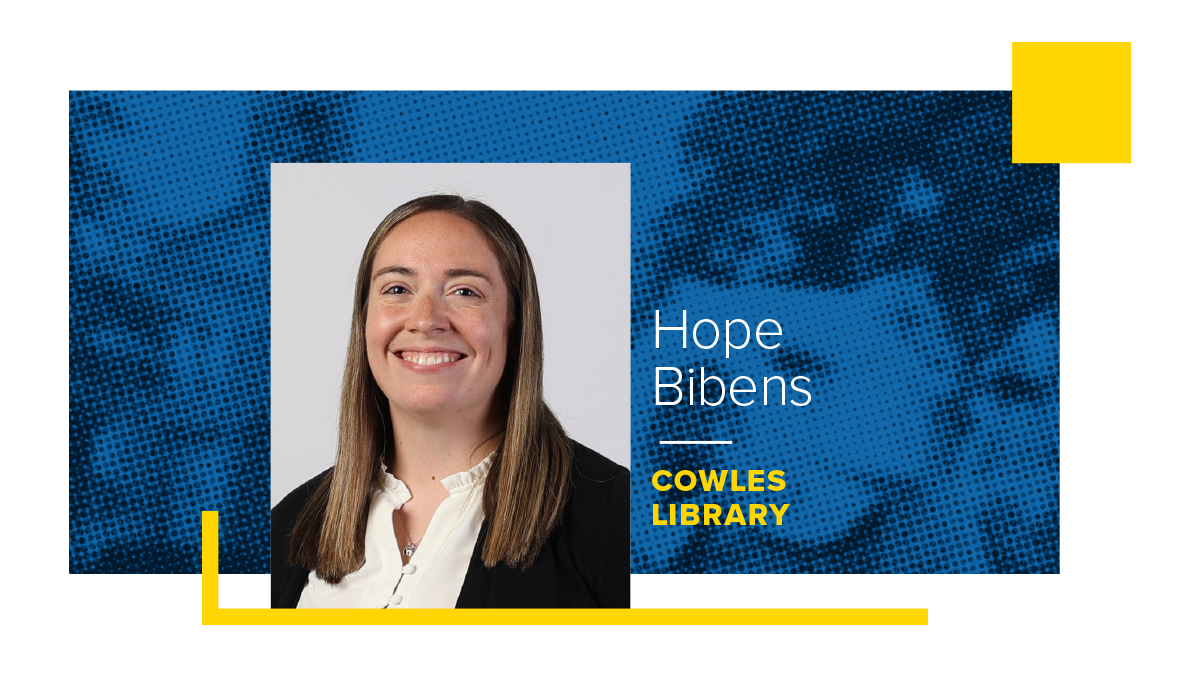
Libraries are often referred to as a third place–a space outside of home and work that provides a sense of belonging and community. According to sociologist Ray Oldenburg, these third places are anchors of community that are essential to civic engagement, democracy, and a sense of belonging. We like to think of Cowles Library as the anchor of the Drake community.
Originally constructed in 1937, our building is a constantly evolving space where everyone can come together. It provides areas for socializing, relaxation, individual study, and collaborative group work. Cowles Library offers long hours of operation, including Midnight Hall, a space that is open to students 24/7. The public is also welcome to use the library facilities and guests can apply for a library card too. Many student and community groups, including Student Senate, are often found meeting in our building. Providing meeting space and providing programming strengthens the student experience and increases community engagement.
But the library is more than a building. We think of ourselves as a program that transforms lives and strengthens communities by equipping students, faculty, and staff with quality information and teaching them to find, evaluate, and use it. In this way, the library prepares students for meaningful personal lives, professional achievements, and responsible global citizenship. We accomplish this through information literacy instruction that is crucial in our constantly changing society. We strive to provide this to all students, but our student assistants who work with us gain additional experience in the important work that libraries and librarians do. Library faculty and staff have mentored many students who have gone on to careers in public and academic libraries, as well as archives.
Drake University Archives & Special Collections works closely with University departments, student organizations, alumni, and civic organizations to preserve, document, and tell the story of Drake University and the larger community it serves. Through preservation of and access to primary source documents, students can explore hidden histories and build community through storytelling.
Cowles Library is a special place for many students, faculty, and community members. We are always discussing ways to make our library engaging and accessible and to increase our critical information literacy instruction.
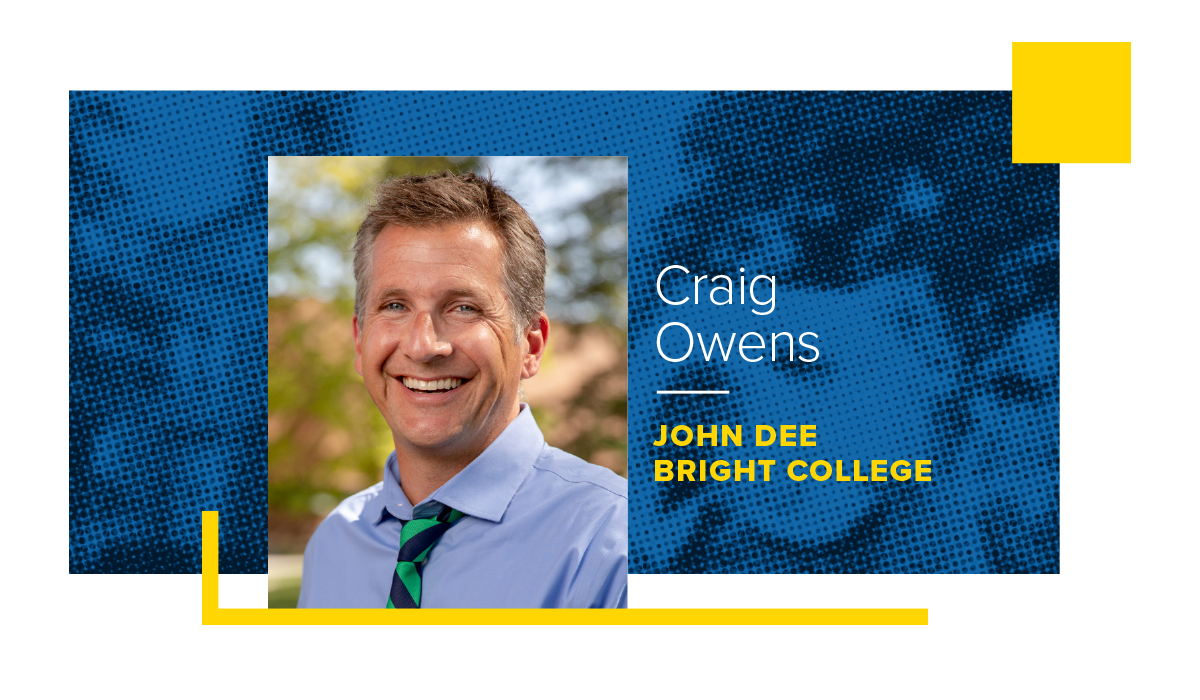
Consider some of the great challenges of our time: climate crisis, refugee migration, international warfare, unequal access to medical care, nutrition, and clean water; our heavily polluted news and information environment; the re-emergence of authoritarian nationalism; and widespread distrust of the institutions supportive of active, participatory, democracy worldwide.
These are not policy, economic, or moral issues alone. It’s not enough to take a scientific, philosophical, financial, or historical approach to dealing with the many dilemmas the world faces today. The fact is, we live in what I refer to as an “all-of-the-above” world, where the greatest opportunities for success—both individual and collective—require us to see past the divisive boundaries we often take for granted, like the boundaries between academic subjects, between college and the “real” world, and between old and young, rich and poor, and people of different races, ethnicities, and nationalities (to name a few of just the most obvious divisions).
The John Dee Bright College is designed for the all-of-the-above world, to encourage our students, faculty, and staff alike to see past—and break through—the many boundaries that constrain imagination, limit agency, and perpetuate injustice.
For instance, in a recent seminar on Global Public Health, our students analyzed not just health data, but environmental, political, economic, and cultural factors that shape communities’ key health indicators, like lifespan, infant mortality, and the prevalence of communicable disease. They worked with experts in statistics, healthcare, political science, and international relations to gain nuanced insight into complex and seemingly intractable problems. In doing so, they came to a fuller understanding of how deeply interconnected the world is, and they have seen more clearly where the levers of change are.
It’s often comforting to rely on clear boundaries, and it’s comfortable to remain forever within them. It can feel safe, warm, and cozy within the walls of the structures we’ve inherited—both literal and figurative. But transformative change—the kind of change college-going should empower—demands that we confront the discomfort of the unfamiliarity, ambiguity, and complexity of an all-of-the-above world. That’s the world Bright College and its graduates are ready to confront.
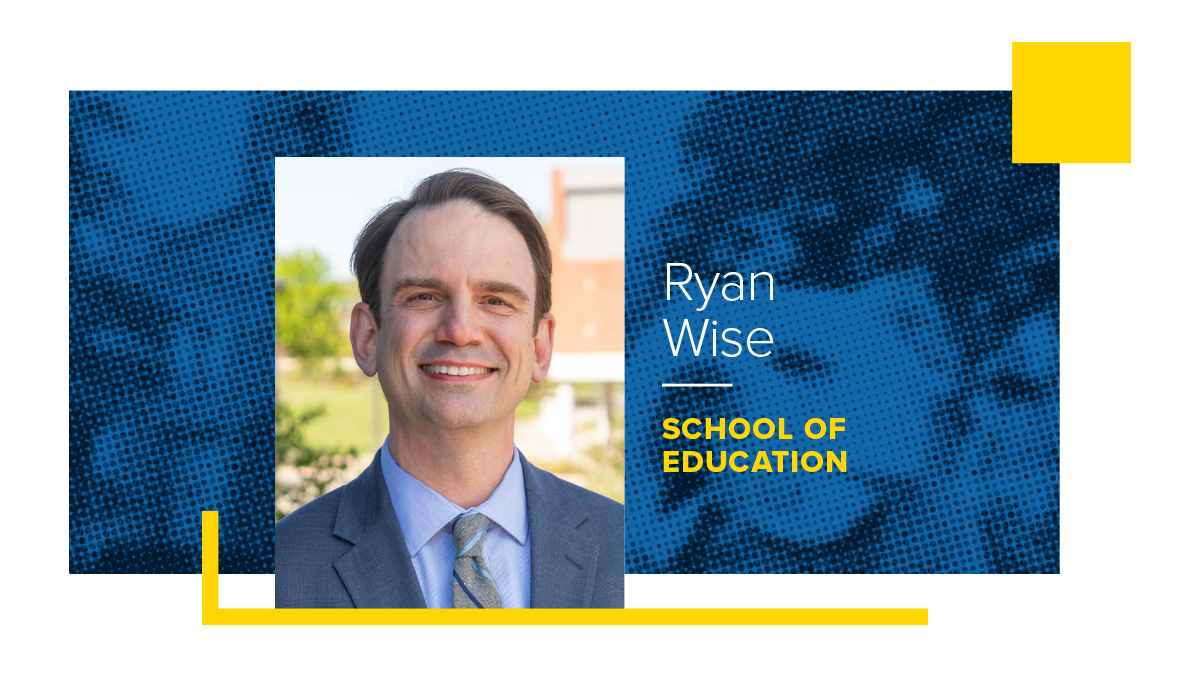
Our mission within the School of Education is to prepare, support, and inspire our students to lead and serve in a constantly changing world. Creating an engaging and fulfilling student experience that builds a sense of community is central to this effort. We do this in several intentional ways.
First, each of our programs provides students with many opportunities to have a direct and immediate impact in schools and communities through practicum, internship, and student teaching experiences. In their very first course, our undergraduate education majors visit an elementary, middle, and high school and begin to make connections with local teachers and administrators. As students advance through their program, they spend even more time in partner schools and agencies providing support while also gaining invaluable first-hand experience.
Another hallmark of our student experience is bringing the community to our students. Each fall, we host an annual Community Partners Day where more than a dozen local organizations come to the School of Education to share paid and volunteer opportunities. These community partners discuss how their work makes Des Moines a great place to live and work. I have received many compliments from our partners about the power of these connections.
Finally, our students themselves take pride and ownership in creating a vibrant experience and sense of community. The Kappa Delta Pi education honor society and the Drake Education Association plan monthly events including timely speakers and insightful panels that cover a range of topics from education-related legislation to teacher mental health. In addition, student leaders like our SOE senator Ben Connolly help make CollierScripps Hall, home of the School of Education, an inviting place. Each month, Ben picks a theme and transforms our lobby into a visual signal that we are a welcoming, student-centered community.
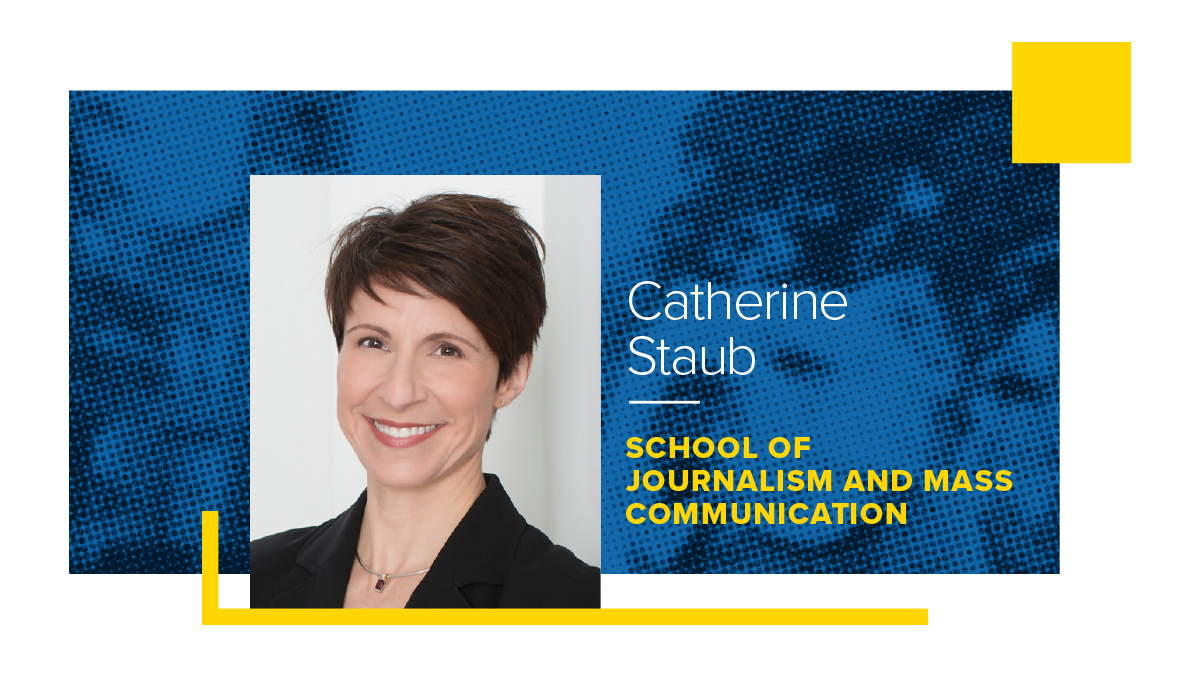
I’m pleased to share that the SJMC received an outstanding ACEJMC report that passed us on all eight accreditation standards. The site team praised the “limitless professional opportunities for students” and “students who speak eloquently about the importance of accepting differences among themselves.” You likely remember the creative assignments and professional opportunities that prepared you for your meaningful career. That strong tradition continues, and I share below the latest highlights from the SJMC:
• SJMC faculty and staff incorporated global perspectives into the classroom with international visitors like Dr. Dren Gerguri, a Fulbright scholar and disinformation expert from Kosovo who met with students in February. Dr. Eric Adae and Associate Professor Lakshmi Tirumala led students on the new Drake Experience x Ghana, embedding students in communication and media organizations in Ghana during their J-Term study abroad program.
• Strategic Political Communication faculty are leading class JMC 110 State Capitol Experience to help students better understand how government operates. This class is available to all interns at the Iowa State Capitol, and it features tours and guest speakers from a variety of government and legislative offices. The experience enables students to build a deeper understanding across all areas of government—not just in the offices where they are completing their internships.
• Juniors and seniors majoring in Magazine and Brand Media will soon jet off to attend a facultyorganized five-day trip to New York City to meet with TV, magazine, PR, social, and digital media professionals. Three days of the trip will include meetings and activities, including a visit to a television set, small group discussions with 20 to 30 industry veterans, recent hires and executives, and tours of major media outlets like The New York Times, DotDash Meredith Corp., Conde Nast, Hearst, and Edelman.
I’d love to share more about the great things happening in SJMC. Please join us on Saturday, April 27, for the official Meredith Hall re-opening celebration during the 2024 Drake Relays.
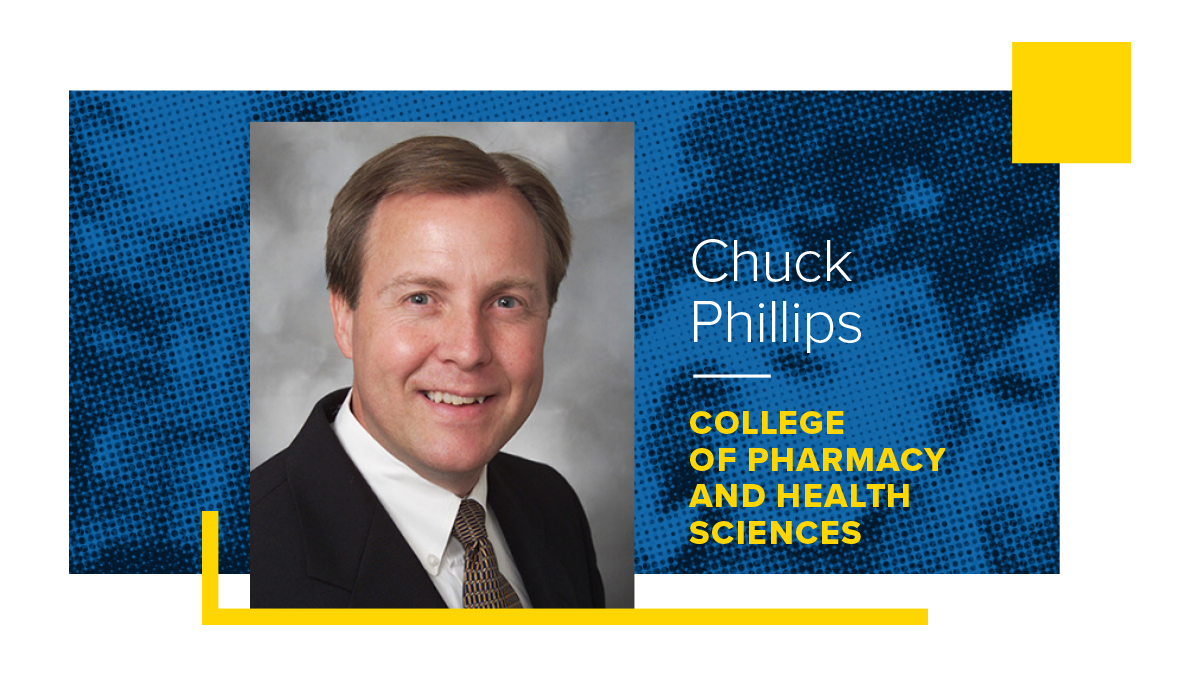
One of the best parts of the Drake student experience is the ability to build community. In the College of Pharmacy and Health Sciences, building community is key to each of our programs. All our programs are committed to combining science with humanity, and our students and graduates are committed to having opportunities to better their communities, their patients, their professions, and themselves.
The student experience builds from their past experiences, their classroom and experiential learning opportunities, campus life, and the cocurriculum. The college is committed to impacting the communities in which we live and work- that means our Drake community, the Des Moines metro and Iowa communities, and the broader national and international communities. These are the places CPHS students go to learn and work to impact health. These are the places students build community in their pursuit of better.
Community is built both on and off campus. While on campus, students are involved in health professional organizations such as professional fraternities, student professional associations, and social organizations. They interact in campus events, cross-college degree programs, and provide health services to the rest of the campus. They work together to learn with, from, and about each other in an interprofessional environment.
While off campus, students learn and provide care at various clinics, hospitals, athletic events, and businesses. They travel throughout Iowa, the nation, and the world to build community and enhance healthcare. This happens during their capstone experiences and the experiential components of their professional programs.
Building these varied communities is a hallmark of Drake, the College of Pharmacy and Health Sciences, and our students. The student experience is wide and varied. It is what sets Drake graduates apart from others as they affect change and improve health throughout the world.
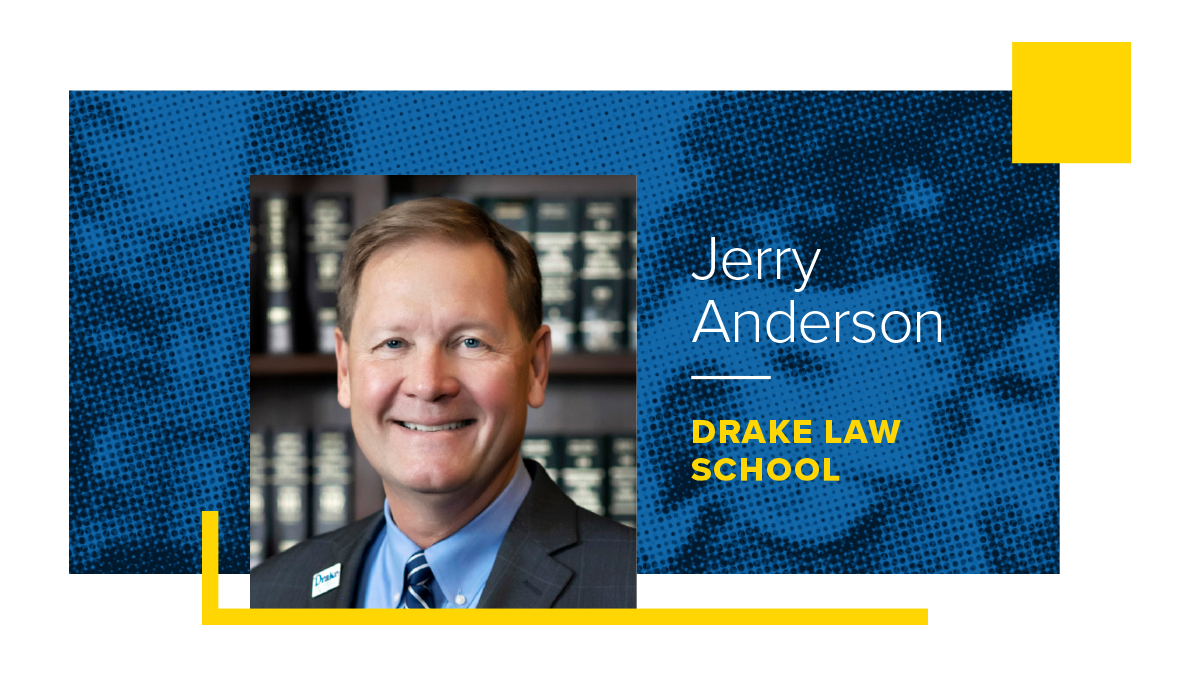
Public service meets professional development in the Drake Law Clinic every day. During 2023, our legal clinic students provided more than 11,000 hours of free legal services to 530 clients. All told, our Law School provided over $1.6 million worth of legal advice to the community last year, in subjects ranging from criminal law to children’s rights to immigration.
While classroom learning remains the bedrock of legal education, students cannot become “complete professionals” until they are sitting across the table from a real client who needs their help. Clinical programs, along with a vast array of internship opportunities, provide formative experiences that give students the confidence to succeed as graduates. Moreover, handling these cases connects them meaningfully to the legal community of judges and lawyers, which leads to jobs or other professional development opportunities.
In 1875, the founder of Drake Law School, Justice Chester Cole, decided to move the school to Des Moines to take advantage of the opportunities it provided as the center of law in the state. What was true then remains true today; the classroom truly extends beyond our campus to the city’s courts, agencies, legislature, and law firms.
Spring always brings a full slate of interesting events to our alumni. This year’s Supreme Court Day events on April 4–6 will include an introduction to the incoming dean. The Law Review banquet will celebrate more than 30 years of Professor Keith Miller as their advisor. Professor Miller, who joined Drake Law in 1979, retires after this semester, having made an enormous impact on the lives and careers of so many. Professor Bob Rigg will be retiring as the director of the Criminal Defense program after 30 years in the role.
This year’s Constitutional Law Symposium on April 13 will discuss “Climate Change, the Environment, and Constitutions,” with the usual impressive lineup of nationally recognized scholars, offering both virtual and in-person options. We are excited to introduce our new CLE program in Harlaxton, England this August. Check out this amazing opportunity on our website.






